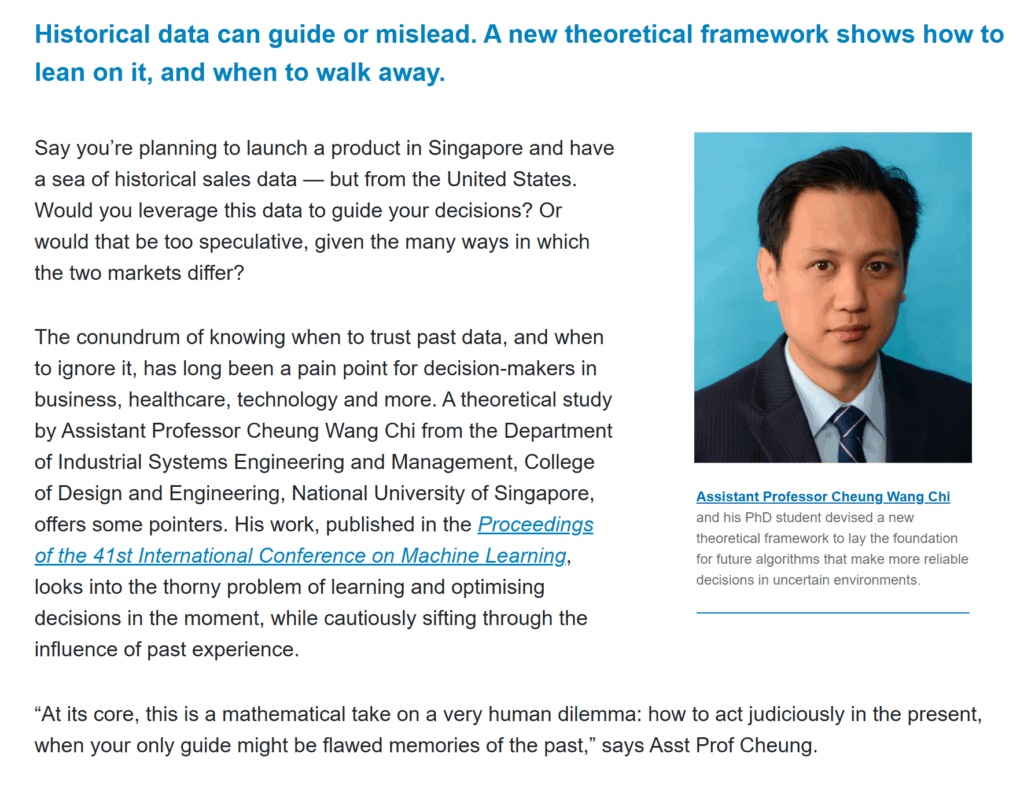
Graphic images in this newsletter were generated using AI and intended only as a visualisation of general concepts or ideas related to the research.
Historical data can guide or mislead. A new theoretical framework shows how to lean on it, and when to walk away.
Say you’re planning to launch a product in Singapore and have a sea of historical sales data — but from the United States. Would you leverage this data to guide your decisions? Or would that be too speculative, given the many ways in which the two markets differ?
The conundrum of knowing when to trust past data, and when to ignore it, has long been a pain point for decision-makers in business, healthcare, technology and more. A theoretical study by Assistant Professor Cheung Wang Chi from the Department of Industrial Systems Engineering and Management, College of Design and Engineering, National University of Singapore, offers some pointers. His work, published in the Proceedings of the 41st International Conference on Machine Learning, looks into the thorny problem of learning and optimising decisions in the moment, while cautiously sifting through the influence of past experience.
“At its core, this is a mathematical take on a very human dilemma: how to act judiciously in the present, when your only guide might be flawed memories of the past,” says Asst Prof Cheung.
For the full article, please visit https://cde.nus.edu.sg/trust-but-verify-a-new-framework-for-smarter-decision-making/ or download the PDF below:
Issue 06 – Trust, but verify a new framework for smarter decision-making


